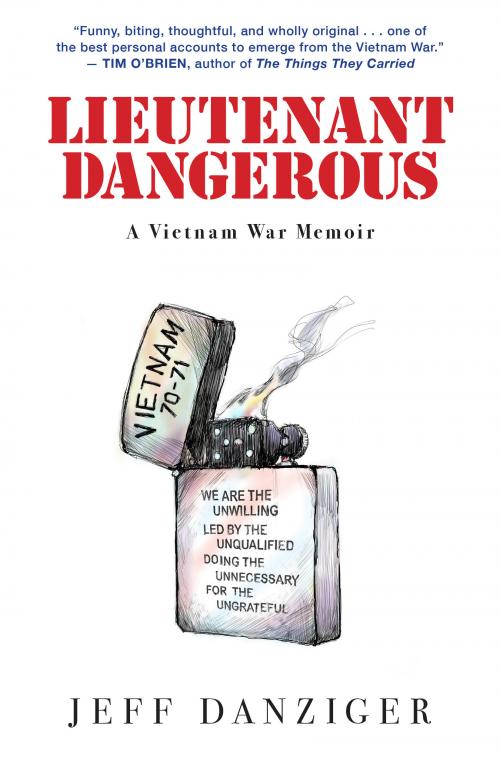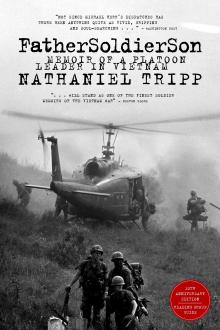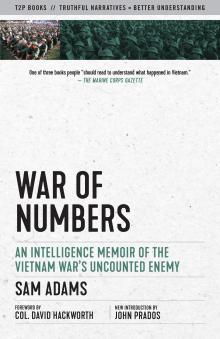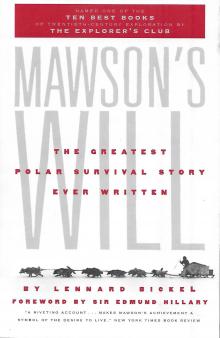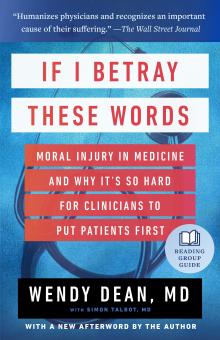Praise
Lieutenant Dangerous is, the author notes, a sad story, full of waste and loss." It's powerful. Put it next to Tim O'Brien's "The Things They Carried" on your bookshelf.”
--Laurie Hertzel, The Minneapolis Star Tribune
An important book . . . at times mordantly funny, at others sparking with anger."
--The Washington Post
By turns funny, sad, horrifying, and thought-provoking . . . reads like a cross between Joseph Heller’s Catch-22 and the television show M.A.S.H.”
--The Christian Science Monitor
As with his cartooning, Danziger pulls no punches with his description of his time in the service and Vietnam."
-- The Florida Times-Union
A must-read war memoir . . . with zero punches pulled, related by one of the most incisive observers of the American political scene."
-- KIRKUS reviews (starred review)
In clear language he [Danziger] describes both the horrors and absurdities of war and the toll it takes on a soldier.
-- The Rutland Herald
Brilliant political cartoonist Jeff Danziger has written a crackerjack new book...The book is a rollicking, honest, cynical and, at times, tragic recollection of that dreadful and deceitful war."
-- Valley News
Danziger's new book isn't merely a recollection of a tumultuous time in his youth; it also passionately engages our political situation now."
-- Seven Days
Lieutenant Dangerous is a forthright, brutally honest memoir of one American’s experiences during the time of the Vietnam War.”
--The North Star Monthly
Danziger’s book is a note to the wise. You can forget about the Vietnam War. Certainly, the past cannot be recovered. But it pays to be on guard not to repeat the same mistakes in the future. Danziger has written a fine book and it is well worth reading.”
--Global Insights
His book, which careens from political satire to wrenching personal history with a highly palatable dollop of social analysis, is as relevant today as it would have been when the events it describes were taking place."
--Who What Why
Mr. Danziger belongs to a generation that was shaped by the war in Vietnam and the political upheaval it caused. He has succeeded in what he set out to do — to narrate one young man’s journey through the worst of that maelstrom. And he has managed to set it all down without so much as a whiff of undeserved nostalgia.
--The Barton Chronicle
Jeff Danziger's Lieutenant Dangerous is funny, biting, thoughtful and wholly original. This memoir instantly ranks among the best personal accounts to emerge from that war. I have encountered nothing quite like this wonderfully acerbic, go-for-the-jugular book."
--Tim O'Brien, author of The Things They Carried
Most readers will know Jeff Danziger as a brilliant cartoonist. Lieutenant Dangerous shows that he is a brilliant writer as well. Full of mordant observations and absurdist escapades, this memoir of his army service reads like a real-life Catch 22 -- with Danziger as the Captain Yossarian of the Vietnam War. Lieutenant Dangerous joins the small shelf of must-read books for a sense of what it was really like to be a soldier in America's most unpopular war."
-- Max Boot, author of The Road Not Taken: Edward Lansdale and the American Tragedy in Vietnam
From arguably the best political cartoonist this nation has ever produced...wow: words! And what words. Having spent a decade on the ground in Afghanistan, I can certify: this book applies directly to today's wars. Only, in the transition to an all-volunteer army, what may have disappeared from the ranks of our officers is this type of brutally honest skepticism."
-- Sarah Chayes, author of The Punishment of Virtue: Inside Afghanistan After the Taliban and On Corruption in America: And What Is At Stake
The Things They Carried, and Karl Marlantes' Matterhorn
--Tom Bodett, Author and radio anomaly
Every West Point cadet should be required to read Lieutenant Dangerous, political cartoonist Jeff Danziger's powerful memoir about his four years in the army, when honor, integrity, and purpose were as illusory as American victory in Vietnam."
--David Cay Johnston Recipient of the Pulitzer Prize, an IRE Medal and the George Polk Award
'I am not a weeper, but I sat on the bus to Ft. Dix and wept.' So begins Jeff Danziger's youthful journey to the center of America's Vietnam maelstrom. A 24 year-old Vermonter with a pregnant wife at home, Danziger experienced the full-on nightmare of the Army's Vietnam catastrophe. He saw everything combat -- death, hypocrisy, moral degradation, and the fervid futility of the mightiest nation on earth bested on the battlefield by men and women fighting in pajamas and loincloths. He saw everything, that is, except the nominal purpose of the conflict. There is no evidence of a shared cause with our South Vietnamese 'allies,' no evidence that American soldiers knew or cared about the Communist Threat, and no evidence of the proverbial quest for glory that theoretically animates military endeavors. War, he writes, is 'in an awful way, interesting, if you can avoid getting killed and don't mind loud noises.' Danziger's purpose is to inform, but he and we wonder what the story of the 55,000 squandered American lives has taught us. Then the jungle; now the desert. Then B-52s; now Predator drones. The more America's ill-informed interventions change, the more they stay the same."
--Alex Beam, author of Broken Glass and Gracefully Insane

